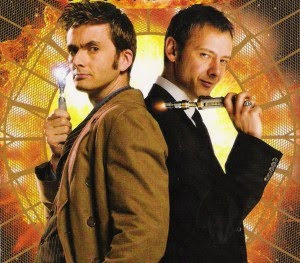Violence in the media turns our children into homicidal psychopaths... apparently.
Remember when you first watched the opening scene of Saving Private Ryan? Remember how gruesome it was, and how it made you feel about the grim battlefield of Normandy? Remember how it introduced you to the main characters in one of the most critically acclaimed films of all time?
Ok, now imagine that whole scene if the soldiers had no guns, fired no bullets, and bled no blood... if I were you I'd head for the door.

The 'Politically Correct' version of Saving Private Ryan in South Park.
All the guns have been replaced by walkie-talkies.
Violence is always a buzzing hive of controversy in the media - the concern that the films and games that kids are engrossed in today are way too bloody and destructive... but without the blood and the shooting and fighting, who wants to pay for something they can't invest in?
It is true that so-called 'high-impact' games like Grand Theft Auto have been the source of blame for youngsters who've gone and stole a car or shot someone, but when you look at how many people play the GTA games on a regular basis, and what percentage of them go on murderous killing sprees it's not hard to see that it's such a vast minority that it raises doubt about how much of an impact media like that have on the human psyche.
And when it comes to fast-paced First-Person-Shooters (FPS) like Call of Duty, then why are they so loved by the very soldiers that the game is personifying (the very men and women who specialise and surround themselves in such 'violence')? These games are even being used by the US military to encourage potential recruits and train drone pilots, so surely all this 'senseless killing' is helping maintain world peace.
For anybody who has doubts over the moral fibre of shooters like Call of Duty then please read this article published shortly after it's release.
All in all, violence has a huge place in the media around us today, and rightly so. Any concerns about corrupting our nation's youth should be addressed with the parents and guardians, rather than the developers who are just trying to give people a fun, immersive experience.
Otherwise some of the most beloved and enjoyable films and games are going to be heavily censored - and nobody wants that.
...trust me: I played the Australian version of Left 4 Dead 2


